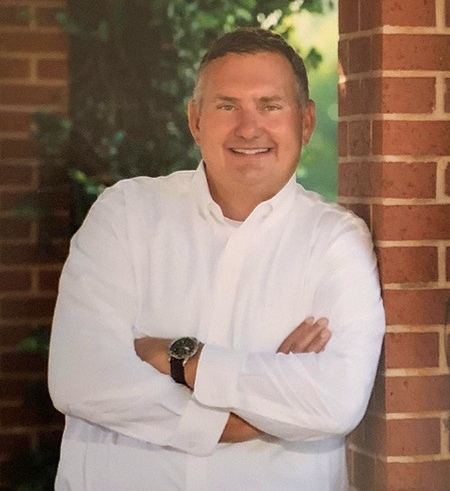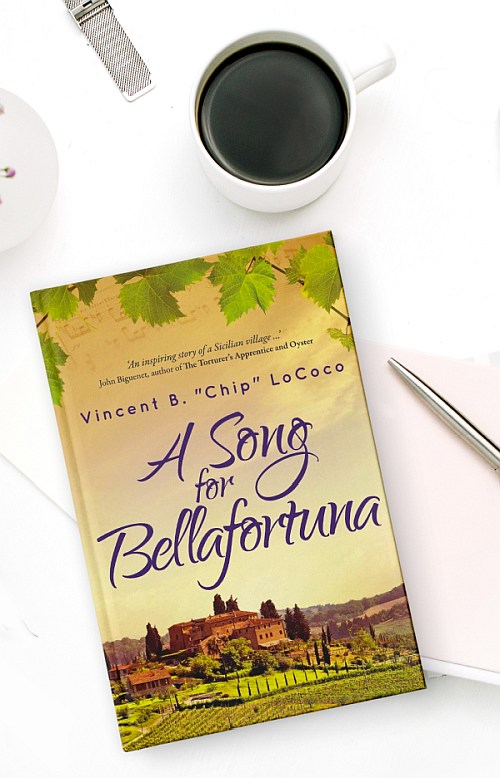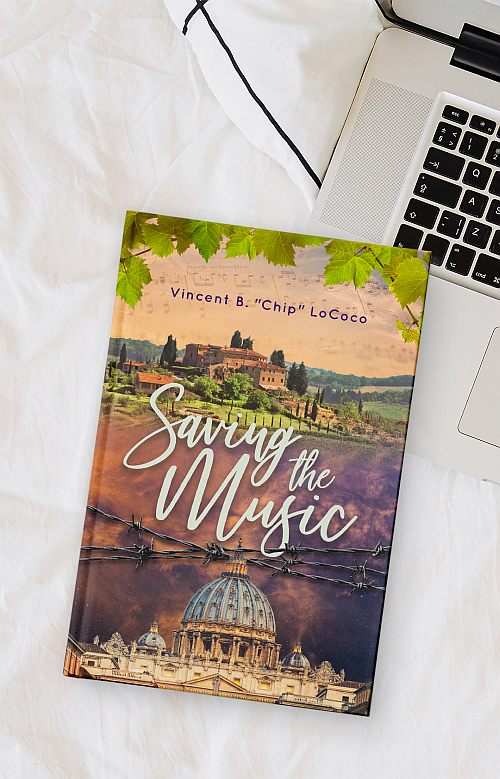- By Ana
- June 11, 2020
- 6:10 pm
Interview With Author Vincent B. "Chip" LoCoco
I met Vincent B. “Chip” LoCoco in the spring of 2015, just as he was preparing to launch his novel “A Song for Bellafortuna“. Five years later, after he became a Best Selling and Award Winning Italian Historical Fiction Author, he published the second novel in the series, titled “Saving the Music“. “A Song for Bellafortuna” is the a winner of the B.R.A.G. Medallion award in historical fiction and the number one best-selling title on Amazon in the Opera Music genre.
Hi, I’m Ana Grigoriu-Voicu, book cover designer to independent and best selling authors all around the world. My focus lies on creating powerful visual stories for your published masterpieces. Via my blog I’m aiming towards providing you with the unique artistic perspective of someone who wants to turn each project into a best-seller. If you want to find out more about my work or you’d like to stay in contact, feel free to connect with me over Facebook, Instagram or e-mail.

The Bellafortuna Series begins with “A Song for Bellafortuna”, an inspirational Italian Historical Fiction novel set in the (fictional) village of Bellafortuna, Sicily. What was your main source of inspiration behind “A Song for Bellafortuna”?
The very first novel I wrote, Tempesta’s Dream – A Story of Love, Friendship and Opera, was dedicated to my son, Matthew, who had just recently been born. By the time the book was released, my wife and I had welcomed our daughter, Gabrielle, into the world. I knew right then that I needed to write another novel so I could dedicate a book to her. The inspiration for A Song for Bellafortuna was Enrico Caruso, the greatest Italian Tenor who ever graced the world’s opera stages. As I reflect back to the genesis of the entire writing process for that novel, I distinctly remember that the way the story came to me was Caruso would come to a small village and save the villagers from something. From that simple premise, the story began and the fictional history of Bellafortuna started to take hold.
The second title in the Bellafortuna Series, “Saving the Music” sets the villagers of Bellafortuna in the midst of the Second World War, in a bid to save the protagonists and protect them from imminent danger. How did the story evolve in this direction and how long did your research take?
As discussed earlier, A Song for Bellafortuna, was my second novel. One day, I received a review from a reader who loved the novel and the characters. The reader mentioned that she wished the story would continue, as she so much desired to know what happened to the characters as they got older. A week later, I found myself in Washington D.C., with my wife and our friends, on our annual trip to an away New Orleans Saints football game. While there, we visited the Holocaust Museum. I remember seeing the room filled with shoes, shoes from the victims of the Holocaust. Not far from this display was a plaque thanking the Italian people for what they had done in saving the Jews during the Holocaust. Upon my return to New Orleans, and since I am a proud third-generation Sicilian-American, I began researching the Italian response to the Holocaust. My research blossomed into Saving the Music. As I researched more and more, I began to contemplate even more the reader’s comment wanting to know what happened to the characters that she loved from A Song for Bellafortuna. Those characters would only be in their 60s during World War II. I wondered what would have happened to them, and the idea of this novel came blasting into my head. It is a historical fact that Italians hid the Jews, and Bellafortuna would be such a location where they would be hidden. As for the research, it probably took longer than the writing itself. Pope Pius XII plays a role in the novel, and his response to the Holocaust is quite controversial.

So, I knew I needed to be particularly diligent in all of my research. I spoke with major historians on the subject, as well as people who lived in Rome and at the Vatican during WWII to make sure I got the atmosphere right. There was even a 95-year-old priest who himself was involved with saving Jews during WWII, who read the manuscript and hand wrote to me from Rome, on six pages, his thoughts and ideas for the novel. All in all, the research took about a year, off and on.
A Song for Bellafortuna is available for purchase at Amazon in e-book, paperback, hardcover and audiobook formats.
Vincent B. LoCoco writes a heartwarming piece of historical fiction . . . He captured the essence of the Sicilian culture, especially regarding the value of ancestry and music . . . A Song For Bellafortuna is a beautiful tale of antiquity.”- Readers Favorite 5 Star Review
How did you begin writing? What sparked your interest in becoming a writer?
In college, I was a history major. Following college, I went on to Law School, and now I am an attorney, specializing in Estate Planning. I list all of that for the sole purpose of explaining that my background was not steeped in creative writing or fiction. However, I did read a lot of fiction, and I always loved movies, Broadway and opera. All three genres tell stories. And I would say that telling stories was what sparked my interest in writing. The story for my first novel came to me one night, and I began to write. Never thinking I could write fiction, I was surprised at how the story flowed, and the writing came easy. Of course, once you write one book, you are bitten by the bug, and you can’t wait till you can get lost in telling stories again.
Do you outline the characters’ traits before starting to write a story or do you let them develop on their own as the story progresses?
I definitely let the character’s traits develop from where the story takes me. Often, my original thoughts on a character may completely change as the story takes place and when I view that character in a certain scene that I am writing. Your question does make me think of a letter that I stumbled upon by JRR Tolkien, written to his publisher. He was giving the publisher an update on The Lord of The Rings, which he had just begun. Near the end of that letter, Tolkien wrote that “Dark Riders” had just entered the story, and that he could not wait to get back to his work to discover more about them. It was as if the story was still developing while he was writing.

What part of a story do you usually find the hardest to write?
For me, the hardest part is the beginning. When I write, I have already outlined in my head the storyline and how it’s going to end. It seems for my writing process, I need to have the ending clearly delineated so that all of my writing, chapter by chapter, drives toward that ending. With that outline in my head, I start to write. Inevitably, the beginning is the hardest for me, as it’s quite a balancing act to introduce the readers to the story, the characters, and their history, yet at the same time, holding enough information back so that it does not read like an information dump. I probably work on the beginning the most, as I often go back to it, to tweak an idea or thought, over and over again.
What do you think about the concept of writer’s block?
I’m laughing at your question, because, as I write out my answer, I am looking at bottle of wine called ‘Writer’s Block’ that a friend gave me at a book signing. On top is a card with a photo of Shakespeare and words that state ‘In case of an emergency, break the glass.’ I’ve never really been confronted with writer’s block myself during the writing of a story. My most intense part of writing is actually finding the story I want to tell, and how I want to tell it. I often have many thoughts and ideas of possible stories, but I lose interest quickly. Finding that next story is what gives me the most pain in being a writer.
Saving the Music is available for purchase at Amazon in e-book, paperback, hardcover and audiobook formats.
What is your writing setup and do you have any kind of “writing ritual” to boost your inspiration?
I have two writing spots. One is at my house, out in our pool house. Next to a window, overlooking a colorful garden, I have a small camp style desk. On top that desk, are some figures from some of my favorite fiction books, such as Frodo, Sherlock Holmes and Bob Cratchit carrying Tiny Tim on his shoulders. When not writing at home, you can usually find me at a coffee shop early in the morning before work, with Ipods in my ears, listening to music to inspire me for the day. And before you ask, its usually music from films, or Opera, or classical. Rock music and writing for me do not work.
“An emotionally charged, fast paced, gripping tale . . . A stirring testament to the strength of the human spirit and the power of music.” Saving the Music
What is the best piece of writing advice you’d give some that has just started writing?
The key for writing to me is to love the story you are going to tell. And when I say love it, I mean you can’t wait to get the story down on paper. So much so, you wake up every day, hoping to find time that day to work on the story. And here is the key. If you love it that much, then the story will always be there, even if life or work takes you away from it for a week or two. The moment you get back to it, you are immediately back in the groove and picking up writing the story right where you left off. It is a great feeling and one that I have to give credit to the fact that I am in love with the story.
What book is currently on your nightstand?
Every summer, I go back and read a certain book. I’ve been doing that since I was in my twenties. However, now stuck at home during this current pandemic, I decided to get an early start and I started reading it again. The book is The Lord of the Rings by JRR Tolkien. It’s my inspiration for writing. The way Tolkien can show you a world through his writing is magical. How he could write such a masterpiece is a mystery. It’s a great escape from this weird, strange life we are currently living.
What are you planning to work on next?
During the course of my writing career, I became an Italian Historical Fiction Writer. However, with Saving the Music, I tapped into a whole new genre of European Fiction, German Fiction and Holocaust Fiction. As for now, I’m in the slow development stage of ideas for novels. The one I keep coming back to is the story of the village of Bellafortuna and the rise of the Mafia after WWII. It’s in the early stages. This would be book three of the Bellafortuna Series, and probably would round out the entire series.
Where can we follow your work online?
My website can be found at www.vincentlococo.com
Share this article:


